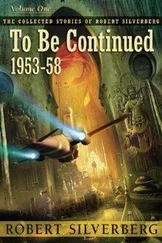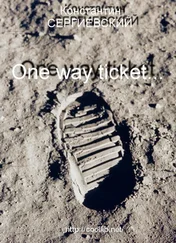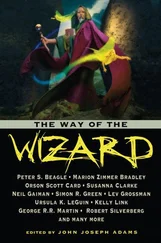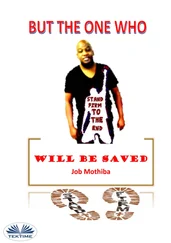He relayed his instructions and swung his buggy around to get the best run-up. He checked his suit again. Seventy-five per cent. Very different from yesterday. They should have been more prepared, with some kind of contingency plan. Marcy’d still be around, and he wouldn’t be having to nursemaid both Dee and his grief.
He used his rear camera to check where Dee was, and squeezed the throttle to slowly build up a head of speed. The wheels turned and bit down and he felt the land rise up underneath him, forcing him against the back of his seat. There was a jolt, followed a moment later by another as the rear wheel hit the same unseen obstacle, but he was moving smoothly enough. He squeezed down harder. Fifteen seemed like fast enough for the lower slopes.
The image on his screen showed Dee was already losing ground. “Give it some gas. You’re pulling, so don’t be scared.”
The empty trailer was bouncing hard without any weight on it. It didn’t have adjustable wheels in the same way that the front end did, just regular dumb ones, no motor, no active control. And in the lower gravity, it was slewing and fishtailing away, and now he was worried about damage to the linkage. He felt he had no choice but to ease off slightly, go slower and run the risk of stalling.
No, not stall, since the motors gave him maximum torque at zero revs, but that brought its own problems with overheating and burnout.
He kept going, and felt like his face was pointed towards the sky. The top of the slope was all he could see in front of him, and the curtain of the crater wall extending either side. Time dragged out. He was climbing, he knew that, but without a clear view behind him—the rear-facing camera couldn’t resolve the crater floor properly—he was unable to tell just how far he’d gone.
He found himself wondering what it would look like from above, from space. These two tiny insects crawling across the vast red brick wall of the planet. Their huge journey just a tick on the whole monumental edifice that was Mars, insignificant and meaningless.
The top of the slope seemed to be growing closer. Or was that an illusion? Steeper, certainly. He could hear as well as feel the motors growling around him: loose sand and rock crackled underneath. His speed was falling, and he tightened his grip around the throttle. Lots of loose material. He had to increase the traction. Lean forward slightly. Even though that last part wouldn’t do anything in itself.
He watched the odometer tick round in tenths of miles. Surely he had to be at the top by now? But the slope was inexorably upwards, and the ground swelled to meet him.
The motors changed note. For a moment, he thought he’d blown something, but his seat shifted under him and the nose of the buggy nudged downwards. The sudden expanse of emptiness, vast and uncaring and frigid, brought him abruptly to a halt.
The haze in the distance meant he couldn’t see forever, but it felt like it. Emerging from the narrow confines of the crater to be exposed to the full force of the Martian view was like getting punched in the guts. He was actually winded.
“Frank?”
“Alice.”
“You OK? Heart rate up, blood pressure up, breathing rate up. You’re hyperventilating.”
“At the top of the crater wall. You need to see this.”
“Describe it to me instead.”
“I guess. OK. There are three huge volcanoes, like blisters, one directly in front, one to the left, and…” He made sure the brakes were on and climbed out of his seat. Dee was coming up behind, slowly, laboriously, in his own time. “One behind, over Rahe. The ground doesn’t really rise or fall. It’s like the Midwest. Flat. Huge sky. Blue, almost black overhead. Pink haze down to the horizon, and I can’t even tell how far that is away. It’s huge. And there’s nothing. Just rocks and sand and craters of all sizes, different shades of red and brown.”
“Your breathing’s under control now, so you can shut up. Seriously, I can’t nursemaid you—any of you—and you have to look after yourselves. You faint, fall, cut yourself, whatever, while you’re out there, you have to deal with it. I can sit here and watch over your vital signs like Mother Hen, but I got to go and defrost Declan and he’s a whiny little shit at the best of times. Go and get the solar panels and bring them back here so I don’t have to spend too much time cooped up with him. Got that?”
“Ma’am.”
“Just do it. And try and bring your companion back alive this time.”
That was acidic enough to burn. Even when it had started to heal over, he was going to go back to that scab and pick at it.
“Loud and clear, One. Out.”
Marcy, veteran of the open road, would have loved this view.
Frank held up his hand to Dee and the other buggy slowed and stopped a few yards away from his.
“Let’s check our suits and our vehicles. Take a look around and orient ourselves, then we can head off to the target.” He walked around the buggy, taking his time to inspect the wheels and the underside of the fuel cell: there were a few scratches, and some of the tire plates were dinged, but nothing serious. The hitch was robust, with no sign of cracking on the metal welds.
Dee probably didn’t know what to look for, so Frank took him around, shaking the wheels and making sure all the bolts were still tight.
“You OK?” asked Dee.
“Fine.”
“Because—”
“I’m fine.”
Dee had enough sense to desist at that point.
Frank took out the tablet with the map and scrolled across it. The little white crosses of where the supplies had fallen looked uncomfortably like an old cemetery. When he put his finger on each cross the screen detailed the manifest: solar farm, hydroponics equipment, air plant, water maker, habitat module, communications, internal fixtures. Somewhere out there were their personal effects, too. Frank’s little brown box, and his letters, and his books. He guessed that wasn’t a priority, but if he was passing, he might be tempted to swing by.
“Five point six miles north of here. If you’re ready?”
“Ready.”
The landscape was novel. For a while. But after the first few miles, it became a repeat of yesterday. Nothing changed. The volcanoes were no closer, and one expanse of sandy ocher ground littered with fist-sized rocks was very much the same as the next. Half an hour of monotony. Frank kept on telling himself that this was Mars, a completely different planet, a whole new experience. But it didn’t feel real. There was a disconnect between his experience and his body.
Perhaps it was something to do with the thickness of perspex between him and outside, and that most of the sound was deadened to the point of non-existence. Like watching a screen on mute. He’d have to watch out for that.
He navigated his way over to where the map told him the cylinder was lying, and again, he saw the parachute before he spotted the—
“Ah, crap.”
The cylinder was crumpled, and the Mars surface strewn with debris. There was a trail of spilled packing material that extended away into the distance, snagged around rocks and half-buried by blown dust. The top of the container, where the transponder hid, was intact, but clearly the rockets that were supposed to lower it to the ground had failed in some way: fired too soon, too late, or cut out before landing. The bottom end was crushed like a soda can, and the impact had caused one of the two door-hatches to fail completely.
Frank kicked the cylinder as he stalked past it. Things were broken. Of the drums in the container, the lowest two had disintegrated completely, and the next one up had burst around its circumference. There might be something salvageable inside it, but until they could wrest it out, they wouldn’t know.
Читать дальше












